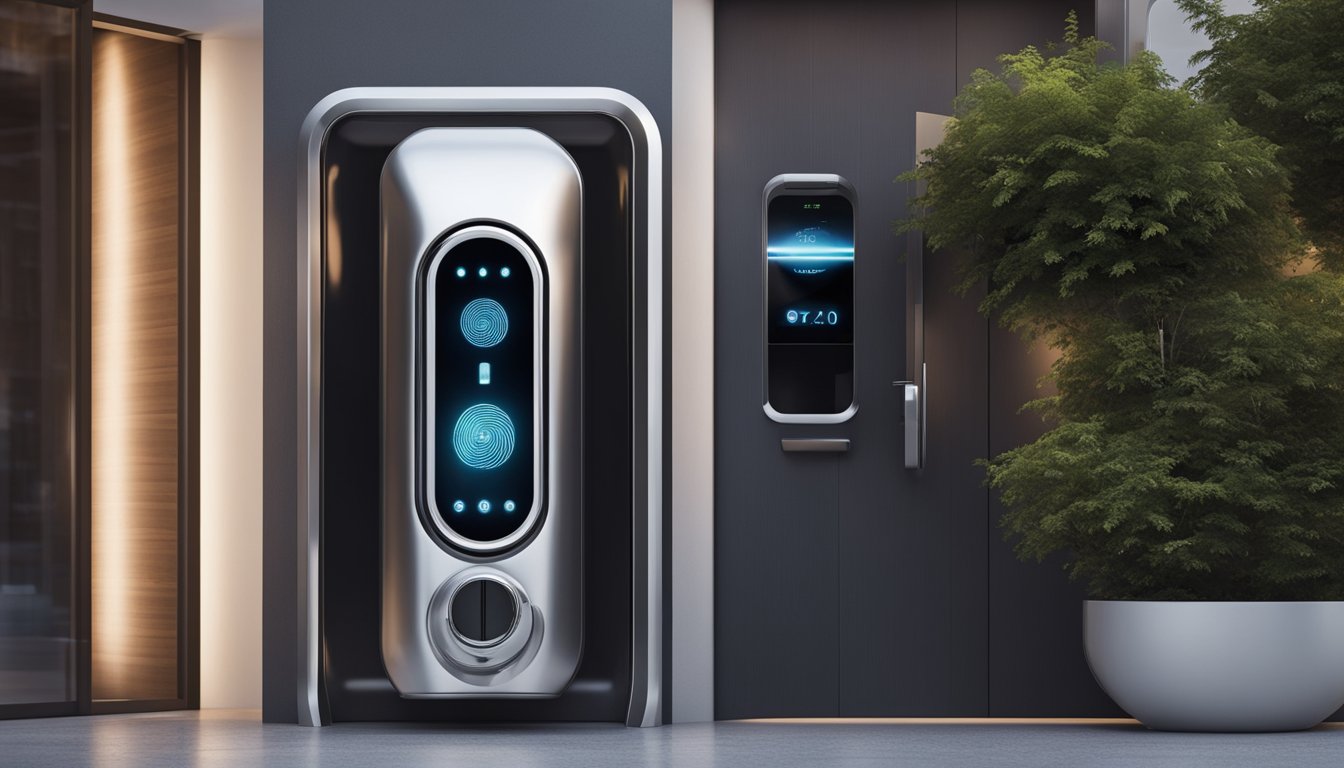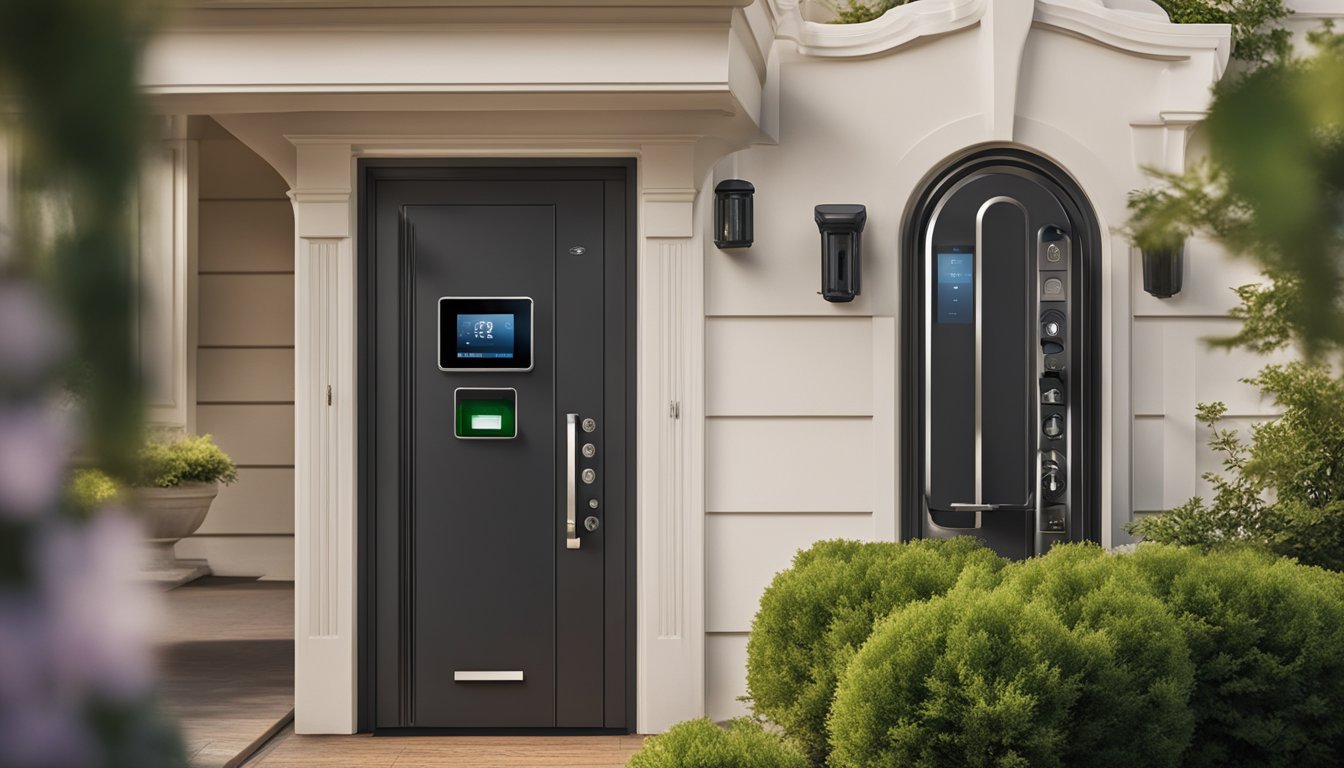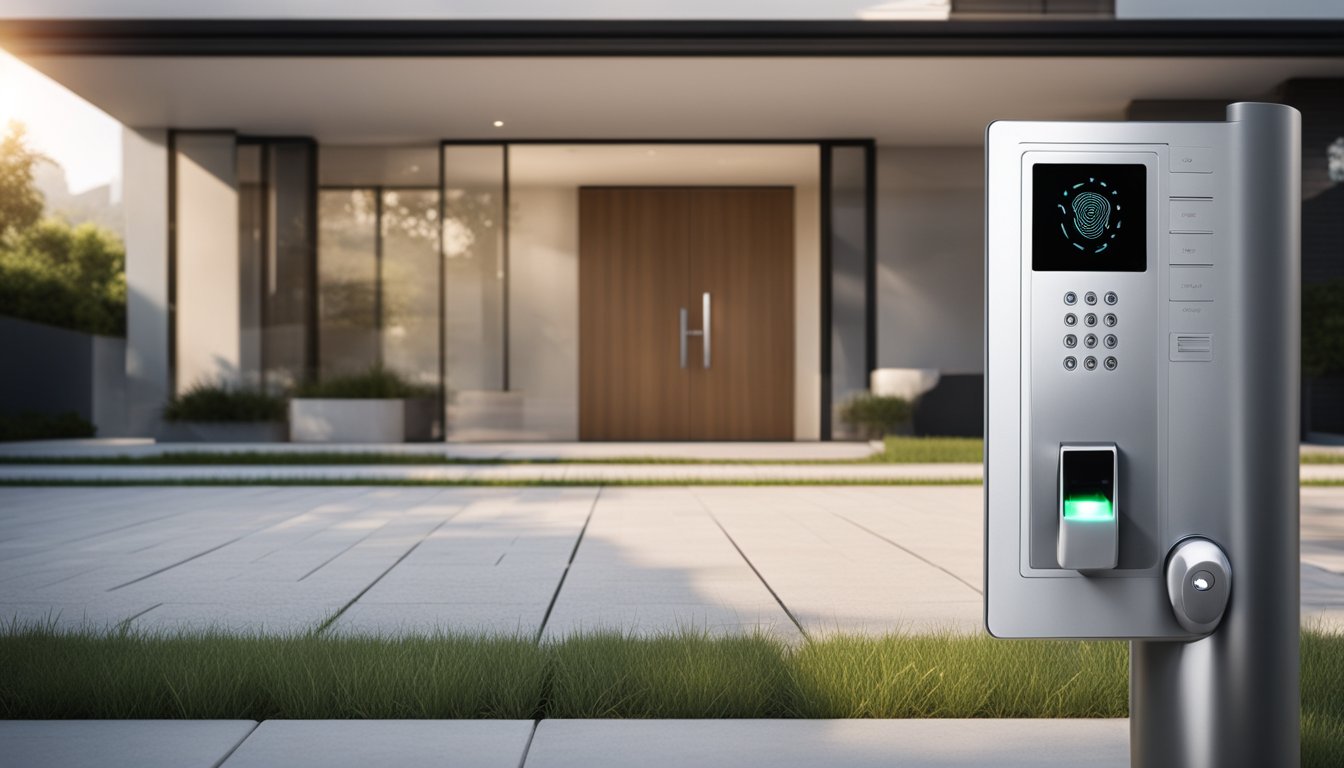Late updated: 18 Aug 2024 14:08
Written by: Elena Prescott
Exploring Biometric Lock Systems for Your Home: Enhancing Security and Convenience
Exploring biometric lock systems for your home offers a glimpse into the future of security. These advanced systems leverage unique human traits such as fingerprints or facial recognition to provide unparalleled access control. Biometric locks eliminate the need for traditional keys, making it both a secure and convenient way to protect your home.

The integration of technology in home security has made these systems incredibly versatile and user-friendly. From the sleek design of the Samsung SHS-P718 smart door lock with its intuitive touch screen interface to budget-friendly options from brands like Wyze and Eufy, there’s a biometric lock to suit every need. By using encryption technology, these locks ensure robust protection against unauthorized access.
For homeowners, practical considerations are crucial when selecting a biometric lock. Factors such as ease of use, reliability, and installation costs play a significant role. Exploring biometric lock systems can help us make informed decisions to enhance our home security effectively.
Key Takeaways
- Biometric locks use unique human traits for access control.
- Technology integration ensures robust security and convenience.
- Practical considerations like cost and ease of use are essential.
Fundamentals of Biometric Lock Systems
Biometric lock systems offer enhanced security by using unique biological characteristics for access control. These advanced systems provide more reliable and convenient solutions compared to traditional locks.
Understanding Biometric Technology
Biometric technology leverages unique human features to authenticate a user. Common types include fingerprint recognition, facial recognition, iris patterns, and voice recognition. Each method analyses distinct attributes to verify identity.
For instance, fingerprint recognition reads the ridges and valleys of a fingerprint. Facial recognition maps facial features, while iris patterns use the eye's unique structures. Voice recognition analyses vocal characteristics. This technology ensures only authorised individuals gain access, providing robust security measures for our homes.
Comparing Biometric Locks to Traditional Locks
Traditional locks rely on physical keys or PIN codes, which can be lost, stolen, or forgotten. In contrast, biometric locks enhance security by using unique biological data that is difficult to replicate.
Unlike traditional methods, biometric authentication does not require carrying keys or remembering codes. This reduces the risk of unauthorised access. Keys can be duplicated, and codes can be guessed, but biometric data is unique to each person, offering a higher security level. Additionally, these systems provide faster and more convenient access.
Key Features and How They Enhance Security
Biometric locks incorporate several features that enhance security and convenience. Biometric scanners capture and process data, while microcontrollers store recognised biometrics.
These systems also include battery compartments for power. Advanced models feature multiple authentication methods, such as combining fingerprint and facial recognition for increased security.
Privacy is also a priority, as biometric data is securely stored and encrypted. This ensures data is protected from unauthorised access. Additionally, these locks offer user-friendly interfaces, making them easy to use. The blend of advanced technology and robust security features makes biometric locks an ideal choice for home security.
Practical Considerations for Homeowners

As we explore the adoption of biometric lock systems for home security, several practical considerations arise. These range from installation and maintenance to evaluating costs, compatibility with smart home systems, and addressing privacy and data protection concerns.
Installation and Maintenance
Installing biometric door locks often requires professional expertise. A qualified technician can ensure proper setup and functionality. Our experience has shown that improperly installed systems can lead to technical issues and unreliable security.
Once installed, maintenance is straightforward. Regular cleaning of biometric sensors and software updates can keep the system running smoothly. Biometric locks typically include software that alerts users to potential issues, making it easier to address them promptly.
Evaluating Costs and Benefits
Biometric locks tend to be more expensive than traditional locks. Prices vary based on the technology used, such as fingerprint, facial recognition, or iris scanning. We'll need to consider initial installation costs, potential maintenance expenses, and any necessary upgrades.
The benefits include enhanced security, as biometric traits are difficult to replicate. These locks often provide secure access control and eliminate the need for physical keys, which can be lost or duplicated. This convenience can also increase the home's value, making it a potentially worthwhile investment.
Compatibility with Smart Home Systems
Many biometric locks can integrate seamlessly with our existing smart home ecosystem. When evaluating options, we should consider compatibility with systems like Amazon Alexa, Google Home, or Apple HomeKit. This integration allows for more comprehensive control over home security.
Moreover, a lock that works with our smart home devices can provide additional features, such as remote access control and real-time notifications. These features enhance usability and ensure we can monitor and manage our home's security from anywhere.
Privacy and Data Protection Concerns
Biometric data is highly sensitive and must be protected. We should opt for systems that use advanced technology to encrypt our biometric information. This ensures that our data is secure from potential breaches.
Additionally, it's crucial to understand the manufacturer's privacy policies and how they handle our data. We must ensure that our data is not shared with third parties without our consent. Being vigilant about these aspects can help maintain our privacy and peace of mind.
In conclusion, while considering biometric locks, we should balance the benefits of convenience and advanced security with the need for proper installation, cost evaluation, system compatibility, and robust data protection.
Frequently Asked Questions

In this section, we address key inquiries regarding the installation, functionality, and security of biometric lock systems. We'll also compare residential and office biometric systems, and explore various types and safety features.
What are the average costs associated with installing biometric lock systems in a residence?
The cost of installing a biometric lock system in a home varies greatly. Basic fingerprint door locks can start at £100 but can go up to £500 for more advanced systems with multiple features. Additional costs may include professional installation and integration with existing security systems.
How does an office biometric door lock system differ from a domestic one?
Office biometric systems tend to be more robust, accommodating multiple users and higher traffic. These systems often include advanced monitoring capabilities and can integrate with broader security protocols. In contrast, domestic systems focus on ease of use, aesthetic integration, and fewer user profiles.
Can you give examples of biometric access control and its usage?
Common examples of biometric access control include fingerprint scanners, facial recognition systems, and iris scanners. For home use, fingerprint locks are popular due to their simplicity. In commercial settings, facial recognition and iris scanning are favoured for their higher accuracy and security.
What types of biometric access control systems are available in the market?
There are various biometric systems available, including fingerprint scanners, which are widely used for their convenience. Iris scanners offer high-security levels and are used in sensitive environments. Facial recognition systems provide a balance between convenience and security, making them suitable for both homes and offices.
What are the potential weaknesses or vulnerabilities in biometric locks?
Biometric locks, while secure, are not without flaws. Spoofing remains a concern, where attackers use fake fingerprints or photos to gain access. Physical damage to the sensor or electronic component can also compromise the lock. Additionally, biometric data breaches pose significant privacy risks.
What safety features are integrated into biometric door locks?
Modern biometric door locks include multiple safety features. Anti-tamper mechanisms prevent physical manipulation or forced entry. Many systems also offer backup access methods, such as PIN codes or mechanical keys, to ensure entry if the biometric system fails. User activity logs and alerts enhance monitoring and response.
